It is a smart practice to take control of your income tax preparation in Canada as a commissioned employee. Proper preparation can help commissioned employees save money by making informed decisions in regards to business-related expenses.
Commissioned employees have the ability to deduct expenses at tax time that are used to earn commissioned income. Having the proper Income Tax Preparation in Canada established can be advantageous during this time and benefit a commissioned employee greatly.
Employment Conditions for Commission Employees:
A commissioned employee is defined as someone who has part of their income based on sales or a different type of accomplishment, and:
- Is required to pay for their own expenses under their contract of employment
- Note: An employee is not considered to have paid their own motor vehicle expenses if the employer reimburses the employee or the employee refuses a reimbursement or reasonable allowance from their employer.
- The employee is normally required to work away from the employer’s place of business
- The employee is paid in whole or in part by commissions or similar amounts. These payments were based on the volume of sales made or the contracts negotiated.
- The employee did not receive a non-taxable allowance for travelling expenses.
- Note: Generally, an allowance is non-taxable as long as it is a reasonable amount. For example, an allowance for the use of a motor vehicle is usually non-taxable when it is based solely on a reasonable per-kilometre rate.
- An employer provides a completed and signed copy of Form T220 Declaration of Conditions of Employment, to the employee.
Tax-Deductible Rules for Commission Employees:
- The employee can only deduct expenses to the extent of their commission income.
- If expenses exceed income, any excess is lost and cannot be transferred to another year to deduct against income earned in the year.
- The employee can always deduct certain expenses as a regular employee against their salary.
-
The employee only needs to use the rules that allow them to deduct certain expenses as a commission salesperson if they were unable to otherwise deduct these expenses as a regular employee.
-
What Expenses Can Be Claimed as a Commission Employee?
- Professional dues
- Union dues
- Salary paid to an assistant
- Supplies consumed
- Traveling expenses (meals/lodging must be away for more than 12 hours)
- Capital expenses (automobile)
- Rental costs of equipment/telephone
- Meals and entertainment
- Office rent/home office expenses (limited – see below)
A commission employee can deduct the cost of renting an office if their employer requires them to pay for their own office space. It is more common, however, for individuals to work for their employers out of a home office. You can deduct the cost of maintaining a home office as long as you pass one of the two tests below:
- Your home office is the principle place of your employment. Meaning you work more than 50% of the time from home.
- Your home office is used exclusively for employment purposes and is used on a regular and continuous basis for meeting clients, customers or patients.
As a commissioned employee, you can expense a portion of the following when it comes to your office rent/home office expenses:
- Rent
- Utilities
- Repairs and maintenance
- Insurance
- Property taxes
How to Properly Document Claims:
In order to support all of the claims, records must be kept for every claim which includes:
- Receipts
- Cancelled cheques
- Invoices
- Credit card statements
- Any other documentation that supports the claim amount
The Receipts Must Show:
- Date of purchase
- Employee’s name and address
- Seller’s name and address
- Full description of the product/service purchased
- Any information regarding GST/HST on the purchase
Contact Me
For any questions you may have, please feel free to contact me by phone at (306) 530-9548 or by using my online contact form below.






